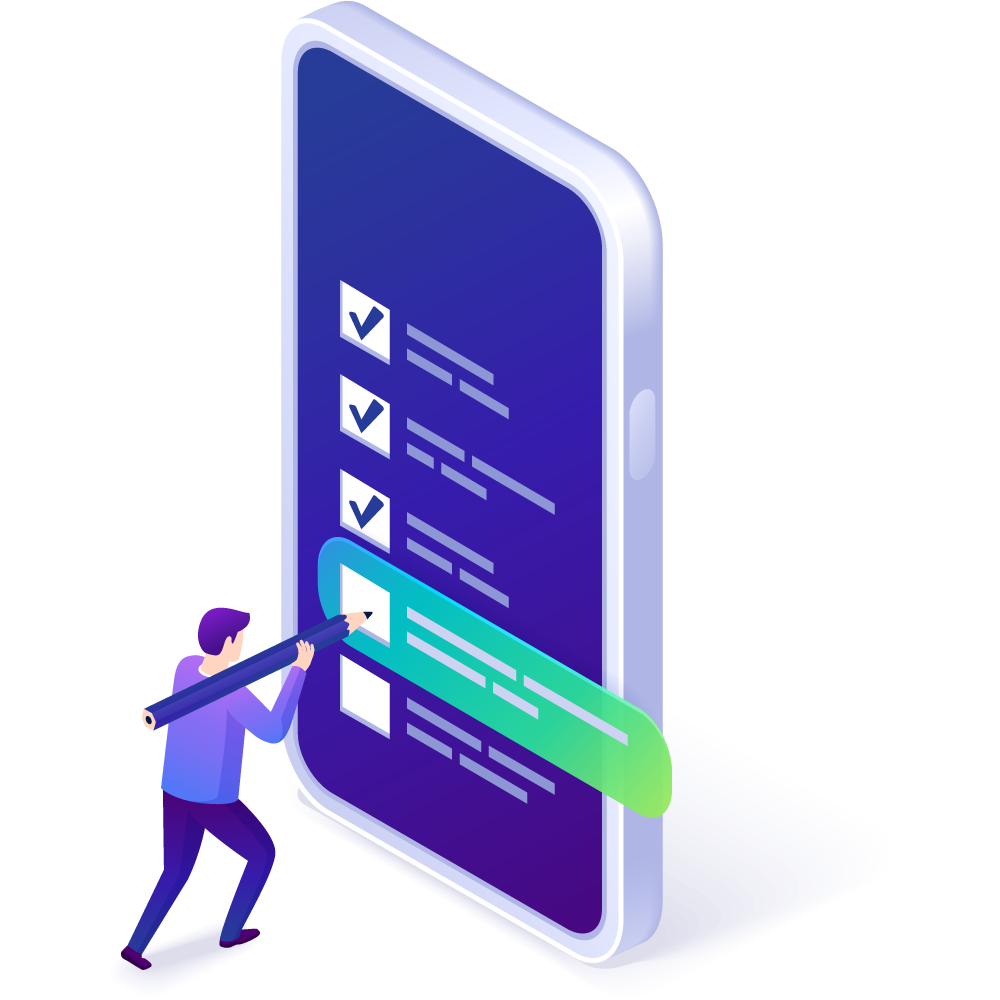Field Service Apps Built With Risk & Regulatory Compliance At Their Heart
Now more than ever, as government agencies hit the limit of mobile capabilities delivered by their legacy systems it is important to understand the role Low-code plays.
Darren Besgrove | 1st April 2022 | 5 Minute Read

With infield employees generating more volume and richer data, the use of forms-heavy apps to aid these employees is now a necessity for any government agency charged with risk, regulatory and compliance monitoring.
Their ability to efficiently capture such data, embellish it with video, annotated images and geo tagging has a clear impact on your agency’s ability to operate efficiently. And, well thought out apps with contextual pre-filling of data, system lookups and intelligent approval workflows can significantly improve both your customer and employee experiences.
However, an app that you can’t drive in-house, doesn’t support rapidly changing regulation or business rules, or is just generally difficult to update can restrain your ability to respond and your infield employees ability to operate. If this sounds familiar then it's time to look for a new approach.
Now more than ever, as Government Agencies hit the limit of the mobile capabilities delivered by their legacy/installed systems, they often have to choose between 2 big options:
Spend a lot of TIME investigating how, when, with what, and at what cost you could replace your legacy system. All the while parking any progress on the much needed field service apps for years.
Or,
Spend limited FUNDS and RESOURCES on new mobile-first systems that just add to the portfolio of products that you have to manage and maintain. With specialised skills that are getting more expensive by the day.
Luckily, there’s a third option - EXTEND what you have, with just the extra functionality you need. And keep extending it.
With a low-code suite, the possibilities for rapidly developing custom, for-purpose risk, regulatory and compliance field service apps have grown enormously. And with low-code vendors that now focus on the RegTech space and serving those unique needs of both regulatory agencies and their customers the possibilities have been shown to be reality.
Check out these case studies to see how 2 leading government agencies transformed their field service operations for greater efficiency and customer satisfaction by using OneBlink’s Low-code Suite (LcS) to create for-purpose field service apps.
SafeWork NSW
Previous manual process had inspectors spending approximately 2 days per week in the office, and lots of travel time within their ‘infield’ days while still needing to call the office to create new entities and check interstate licences. Separately, there were impacts to the overall client experience and missed opportunities for inspectors to provide clients with immediate access to relevant information at the time of interaction.
Using OneBlink’s LcS, SafeWork NSW built the SaFE Mobility App. This app allows immediate capture of ALL job information (removing matching of files, photos etc when paper forms were re-entered), but importantly the SaFE app provided the added ability to:
- update jobs in the field with or without internet connectivity
- create, issue, print and email audits and notices to clients on site
- capture and annotate photographs
- gain immediate access to client details and job history in the field, and
- automated record keeping, direct into their existing case management system.
The SaFE Mobility application was released to a pilot group of 36 inspectors to both test, but importantly allow end users input into the application they would use daily. Enhancements were made under an agile methodology during the pilot phase and, based on feedback received from the pilot group, a full roll out to over 400 users quickly followed.
NSW Food Authority
NSW Food Authority was struggling to deal with over 12,000 inspections plus audits and 2,000 customer complaints it receives annually. The challenge was to reduce the 2 days per week field officers spent in the office and increase the amount of time they could spend in the field with their customers.
With OneBlink’s LcS the BYTE mobile app integrates with an existing case management system to consolidate multiple paper-based forms into 1 intelligent electronic (multi-part) form.
This then connects via a 3rd party middleware layer to NSW Food Authority’s back-end system (or if no connectivity, audits pend on the device until connectivity is restored).
Forms self-calculate so that at the conclusion of the site visit the customer receives a conclusive copy of the report almost immediately via email (instead of the previous 2 week delay).
The app also allows officers to reference electronic copies of policy and legislation material.
While the solution was first rolled out many years ago. Numerous feature enhancements have been requested by NSW Food Authority over the years and OneBlink has continued to upgrade the underlying platform in terms of its regulatory functions, security and performance as part of its “-as-a-Service” offering.
Summary
The best field service apps are made not bought and are built for purpose, and ideally are built with the involvement of the people who will use them. OneBlink’s LcS gives you everything you need to create for-purpose apps that complement and extend your existing systems, and allow your field service team to work more efficiently.
